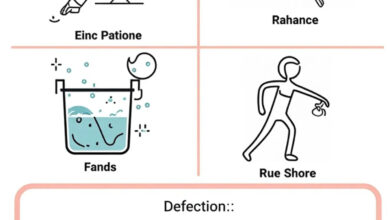The Ultimate Guide to Getting Enough Sleep: Unlocking the Power of Rest for a Healthier You
Guide to Getting Enough Sleep

The Ultimate Guide to Getting Enough Sleep: Unlocking the Power of Rest for a Healthier You
In our fast-paced, always-on world, sleep often takes a backseat to work, social commitments, and endless screen time. Yet, getting enough sleep is one of the most critical pillars of health, influencing everything from your mood and productivity to your physical well-being and longevity. Far from being a luxury, quality sleep is a necessity that fuels your body and mind, helping you thrive in every aspect of life. In this comprehensive guide, we’ll explore why getting enough sleep is essential, how much sleep you really need, the science behind its benefits, and practical strategies to improve your sleep habits. Whether you’re aiming to boost energy, manage stress, or enhance overall health, this article will inspire you to prioritize rest and unlock its transformative power.
Why Sleep Is a Game-Changer
Sleep is more than just a time to “switch off.” It’s a dynamic process during which your body repairs, recharges, and prepares for the day ahead. While you’re dreaming, your brain and body are hard at work, performing critical functions that impact every system. Here’s why getting enough sleep is non-negotiable:
1. Boosts Brain Function and Mental Health
Sleep is like a nightly tune-up for your brain. During deep sleep stages, your brain processes information, consolidates memories, and clears out toxins. Adequate rest enhances focus, problem-solving, and creativity, while sleep deprivation can lead to brain fog, poor decision-making, and irritability. Chronic lack of sleep is also linked to higher risks of anxiety, depression, and cognitive decline.
2. Supports Physical Health
Your body uses sleep to repair tissues, build muscle, and regulate hormones. For example, growth hormone, essential for tissue repair, is released primarily during deep sleep. Sleep also helps regulate blood sugar, blood pressure, and immune function, reducing the risk of chronic conditions like diabetes, heart disease, and infections.
3. Enhances Mood and Emotional Resilience
Ever notice how everything feels worse after a bad night’s sleep? Sleep deprivation amplifies stress and negative emotions, making it harder to cope with daily challenges. On the flip side, getting enough sleep stabilizes mood, improves emotional regulation, and fosters a positive outlook.
4. Aids in Weight Management
If weight loss is a goal, sleep is your secret weapon. Lack of sleep disrupts hormones like ghrelin (which signals hunger) and leptin (which signals fullness), leading to increased appetite and cravings for high-calorie foods. Studies show that people who sleep less than 7 hours per night are more likely to gain weight. Prioritizing sleep can help you make better food choices and stick to your goals.
5. Improves Physical Performance
Whether you’re an athlete or just enjoy a daily walk, sleep enhances physical performance. It improves reaction time, coordination, and endurance while reducing the risk of injury. During sleep, your muscles recover from exercise, making rest essential for fitness progress.
6. Promotes Longevity
Research consistently links adequate sleep to a longer, healthier life. People who regularly get 7-8 hours of sleep have lower risks of premature death compared to those who chronically undersleep. Sleep is a cornerstone of preventive health, supporting everything from heart health to immune function.
How Much Sleep Do You Need?
The ideal amount of sleep varies by age, lifestyle, and individual needs, but general guidelines from the National Sleep Foundation provide a helpful starting point:
- Adults (18-64): 7-9 hours per night
- Older Adults (65+): 7-8 hours per night
- Teenagers (14-17): 8-10 hours per night
- Children (6-13): 9-11 hours per night
- Preschoolers (3-5): 10-13 hours per night
Factors like stress, physical activity, and health conditions can influence your needs. For example, athletes or people recovering from illness may require more sleep. Listen to your body—if you feel refreshed and alert during the day, you’re likely getting enough.
Signs You’re Not Getting Enough Sleep
Watch for these red flags of sleep deprivation:
- Difficulty waking up or needing multiple alarms
- Daytime fatigue or frequent yawning
- Trouble concentrating or remembering things
- Irritability or mood swings
- Increased hunger or cravings for sugary foods
If these sound familiar, it’s time to prioritize sleep.
The Science of Sleep: What Happens When You Rest
Sleep isn’t just “downtime.” It’s a complex process with distinct stages that serve different purposes:
- Stage 1 (Light Sleep): This is the transition from wakefulness to sleep, where your heart rate and breathing slow down.
- Stage 2 (Light Sleep): Your body temperature drops, and brain waves slow, preparing you for deeper rest.
- Stage 3 (Deep Sleep): Also called slow-wave sleep, this is when physical restoration happens—tissue repair, muscle growth, and immune system strengthening.
- REM Sleep (Rapid Eye Movement): This is the dreaming stage, crucial for memory consolidation, emotional processing, and brain health.
A full sleep cycle lasts about 90 minutes, and you ideally experience 4-6 cycles per night. Disrupting these cycles (e.g., waking up frequently) can leave you feeling unrested, even if you spend enough time in bed.
Practical Tips for Getting Enough Sleep
Building healthy sleep habits, also known as sleep hygiene, can transform your rest. Here are actionable strategies to help you get enough high-quality sleep:
1. Stick to a Consistent Sleep Schedule
Go to bed and wake up at the same time every day, even on weekends. Consistency reinforces your body’s circadian rhythm, making it easier to fall asleep and wake up refreshed.
Tip: Set a bedtime alarm to remind you to wind down 30-60 minutes before sleep.
2. Create a Sleep-Friendly Environment
Your bedroom should be a sanctuary for rest. Keep it cool (60-67°F or 15-20°C), dark, and quiet. Invest in a comfortable mattress and pillows, and consider blackout curtains or a white noise machine if needed.
Tip: Remove electronics like TVs or laptops from your bedroom to minimize distractions.
3. Limit Screen Time Before Bed
The blue light emitted by phones, tablets, and computers suppresses melatonin, the hormone that signals sleepiness. Avoid screens at least 1-2 hours before bed, or use blue-light-blocking glasses if screen time is unavoidable.
Tip: Try reading a book or listening to calming music instead of scrolling.
4. Watch What You Eat and Drink
Avoid heavy meals, caffeine, or alcohol close to bedtime. Caffeine can stay in your system for 6-8 hours, disrupting sleep, while alcohol may help you fall asleep but fragments your rest later. Opt for a light snack, like a banana or a small glass of milk, if you’re hungry.
Tip: Finish eating at least 2-3 hours before bed to allow digestion.
5. Establish a Relaxing Bedtime Routine
Signal to your body that it’s time to wind down with calming activities. Try meditation, gentle yoga, or a warm bath. Journaling or gratitude exercises can also quiet a racing mind.
Tip: A 10-minute mindfulness meditation can reduce stress and prepare you for sleep.
6. Get Morning Sunlight
Exposure to natural light during the day helps regulate your circadian rhythm. Aim for 15-30 minutes of sunlight in the morning, whether through a walk or simply sitting by a window.
Tip: Pair your morning coffee with a quick outdoor stroll for a double boost.
7. Exercise Regularly (But Time It Right)
Physical activity promotes better sleep, but avoid intense workouts within 2-3 hours of bedtime, as they can leave you too energized to rest. Morning or afternoon exercise is ideal.
8. Manage Stress and Anxiety
A racing mind can keep you awake. Practice relaxation techniques like deep breathing or progressive muscle relaxation. If worries persist, jot them down in a notebook to address the next day.
Tip: Try the 4-7-8 breathing technique: inhale for 4 seconds, hold for 7, exhale for 8.
Common Sleep Myths Debunked
Let’s clear up some misconceptions about sleep:
- Myth 1: You can “catch up” on sleep. Sleeping in on weekends doesn’t fully reverse the effects of chronic sleep deprivation. Consistency is more effective.
- Myth 2: Everyone needs 8 hours. While 7-9 hours is ideal for most adults, some function well on slightly less or more. Find what works for you.
- Myth 3: Napping makes up for lost sleep. Short naps (20-30 minutes) can boost alertness, but long or late naps can disrupt nighttime sleep.
- Myth 4: Alcohol helps you sleep. It may make you drowsy initially, but it reduces REM sleep, leading to poorer rest.
Sleep for Special Populations
Certain groups have unique sleep needs:
- Children and Teens: Growing brains and bodies require more sleep. Ensure kids have a consistent bedtime and minimal screen time.
- Older Adults: Aging can change sleep patterns, with lighter or shorter sleep. Maintain a regular schedule and address medical issues like sleep apnea.
- Shift Workers: Irregular hours disrupt circadian rhythms. Use blackout curtains and stick to a consistent sleep schedule, even on days off.
Conclusion: Make Sleep Your Superpower
Getting enough sleep is one of the most powerful ways to enhance your health, happiness, and productivity. By prioritizing rest, you’re investing in sharper focus, better mood, stronger immunity, and a longer life. Start small—pick one or two sleep hygiene tips, like setting a bedtime or cutting evening screen time, and build from there. Your body and mind will thank you.
Ready to transform your nights? Create a relaxing bedtime routine, dim the lights, and commit to giving sleep the attention it deserves. Sweet dreams await!
Disclaimer: If you suspect a sleep disorder like insomnia or sleep apnea, consult a healthcare professional for personalized guidance.




